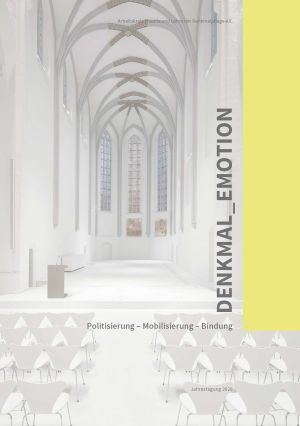How to Cite
Published
Das Gegenprogramm
Mit Schandflecken, bösen Dingen und Emotionen gegen Denkmale
Historic monuments hold an emotional charge, and it is not least the affections of people that leads to their being assigned this special status. This also holds true for monuments that are associated with ambivalent emotions, as in the case of ‘unloveable’ or ‘uncomfortable’ heritage. Yet rejection and opposition, too, are emotional matters. This ‘counter-program’ is explored in the text below. In the process it is revealed that the emotions which are mobilized against monuments are directed either at what they represent or memorialize – thereby confirming that the desired memorial effect is being achieved – or else at their materiality or the condition in which they have been passed down. The primary emotions that are mobilized are a) fear of the object’s efficacy; b) hatred in cases where the object is ascribed political symbolism and becomes an emotional outlet; and c) conscious or else unthinking rejection of any questioning of one’s own positions as a result of the object’s otherness. In each case, it is precisely the emotions that monuments can unleash against themselves that is the best evidence for the efficacy of object-material concepts of memory.








